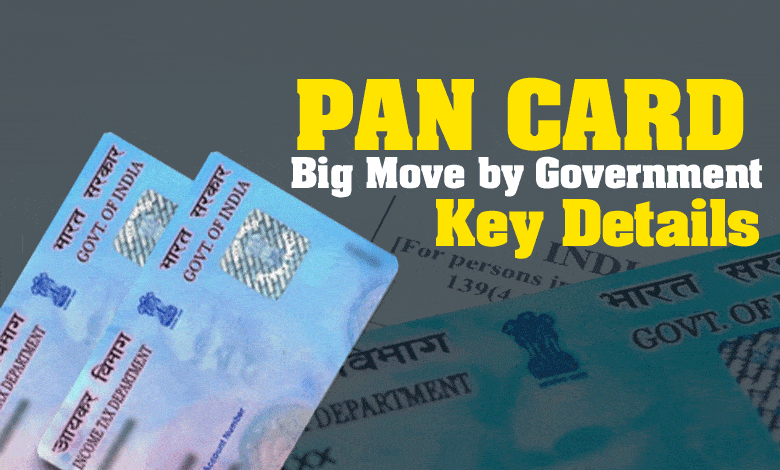Big Move by Government to Prevent PAN Card Exploitation – Key Details Inside
So, what prompted the government to step in to prevent misuse? Why did it have to impose new restrictions? Many large companies, especially in the fintech and consumer tech sectors, have been found using your PAN card details without permission. Here’s how:

Have you ever been in a situation where your PAN card was refused for hotel check-in? While PAN cards serve as valid identity proof, they are often not accepted as address proof. The same rule applies for buying a SIM card—additional address verification is required. Primarily, PAN cards are essential for income tax-related matters.
So, what prompted the government to step in to prevent misuse? Why did it have to impose new restrictions? Many large companies, especially in the fintech and consumer tech sectors, have been found using your PAN card details without permission. Here’s how:
Also Read: Aadhaar Security: Step-by-Step Guide to Protect Your Card
Frequent Messages and Offers Targeting Your Credit Score
It’s common to receive messages promising to improve your credit score or offer quick loans. These unsolicited messages clutter your SMS inbox and WhatsApp almost monthly, often without your knowledge of where they’re coming from. Some messages claim you can secure a Rs 5 lakh loan in five minutes, or they’ll announce shockingly low home loan rates. These enticing offers often lure you into clicking, regardless of your vigilance.
You may have wondered why these loan offers keep coming, even if you haven’t applied for a loan recently. This is largely because fintech and consumer tech companies can access your PAN card details, which you likely provided when signing up on their apps or websites. While you may no longer interact with them, these companies continue to see you as a valuable data source.
What is ‘PAN Enrichment’?
These companies build profiles on users, a process known as ‘PAN Enrichment.’ This means they track any loan activity or credit score change, notifying you of any fluctuations. Even if nothing changes in your credit, they still keep an eye on your data, often without your consent. As a result, many people eventually engage with these companies based on the messages they receive.
New Government Directive on Fintech Practices
This practice is now being curtailed. The Indian Cyber Crime Coordination Centre (I4C), operating under the Ministry of Home Affairs, has issued a directive to fintech and consumer tech companies, requiring them to stop these unsolicited activities. Under the Digital Personal Data Protection Act, 2023 (DPDP), companies can now only access your credit history with your explicit permission. If you choose to deny access, they are legally bound to respect your decision.
